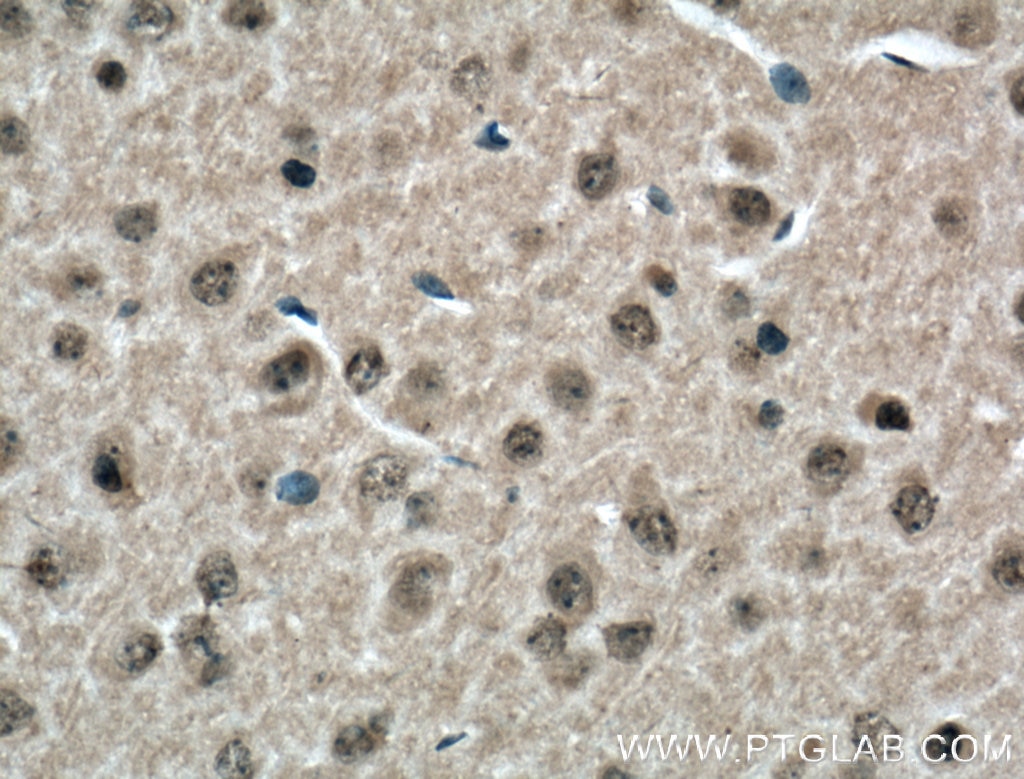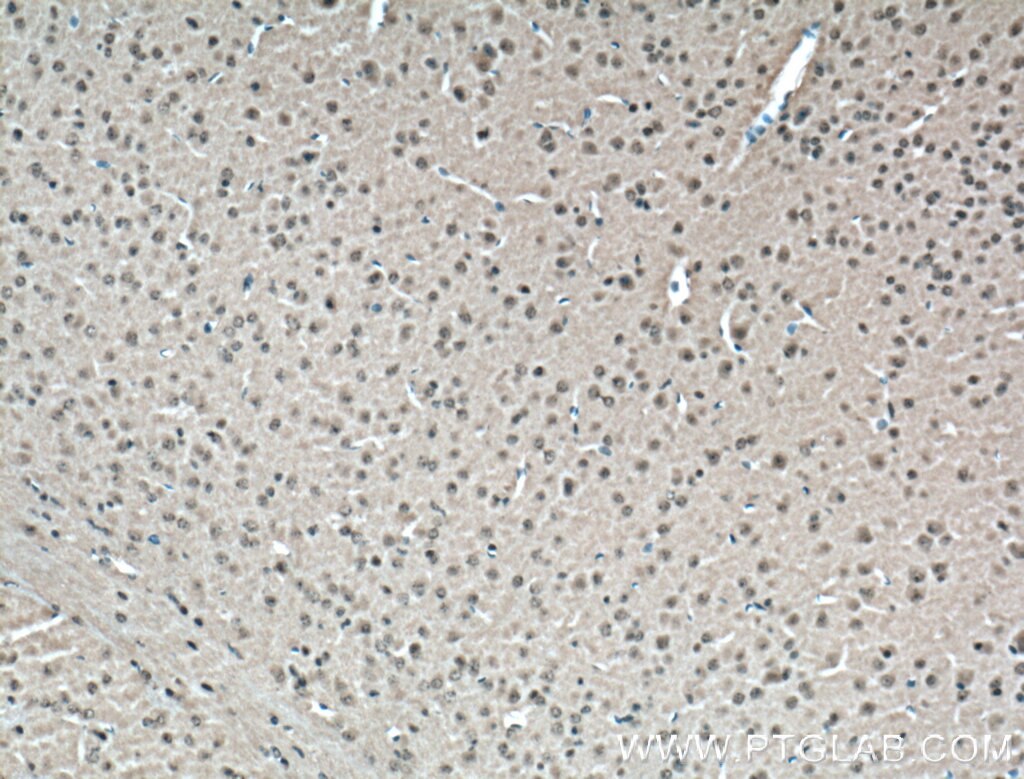Tested Applications
| Positive IHC detected in | mouse brain tissue Note: suggested antigen retrieval with TE buffer pH 9.0; (*) Alternatively, antigen retrieval may be performed with citrate buffer pH 6.0 |
Recommended dilution
| Application | Dilution |
|---|---|
| Immunohistochemistry (IHC) | IHC : 1:50-1:500 |
| It is recommended that this reagent should be titrated in each testing system to obtain optimal results. | |
| Sample-dependent, Check data in validation data gallery. | |
Published Applications
| KD/KO | See 1 publications below |
| WB | See 2 publications below |
Product Information
17182-1-AP targets CDK10 in WB, IHC, ELISA applications and shows reactivity with human, mouse, rat samples.
| Tested Reactivity | human, mouse, rat |
| Cited Reactivity | human |
| Host / Isotype | Rabbit / IgG |
| Class | Polyclonal |
| Type | Antibody |
| Immunogen |
CatNo: Ag10935 Product name: Recombinant human CDK10 protein Source: e coli.-derived, PET28a Tag: 6*His Domain: 1-283 aa of BC017342 Sequence: MDKEKDGIPISSLREITLLLRLRHPNIVELKEVVVGNHLESIFLVMGYCEQDLASLLENMPTPFSEAQVKCIVLQVLRGLQYLHRNFIIHRDLKVSNLLMTDKGCVKTADFGLARAYGVPVKPMTPKVVTLWYRAPELLLGTTTQTTSIDMWAVGCILAELLAHRPLLPGTSEIHQIDLIVQLLGTPSENIWPGFSKLPLVGQYSLRKQPYNNLKHKFPWLSEAGLRLLHFLFMATAGDCLESSYFKEKPLPCEPELMPTFPHHRNKRAAPATSEGQSKRCKP Predict reactive species |
| Full Name | cyclin-dependent kinase 10 |
| Calculated Molecular Weight | 283 aa, 32 kDa |
| Observed Molecular Weight | 38 kDa |
| GenBank Accession Number | BC017342 |
| Gene Symbol | CDK10 |
| Gene ID (NCBI) | 8558 |
| RRID | AB_2878356 |
| Conjugate | Unconjugated |
| Form | Liquid |
| Purification Method | Antigen affinity purification |
| UNIPROT ID | Q15131 |
| Storage Buffer | PBS with 0.02% sodium azide and 50% glycerol, pH 7.3. |
| Storage Conditions | Store at -20°C. Stable for one year after shipment. Aliquoting is unnecessary for -20oC storage. 20ul sizes contain 0.1% BSA. |
Background Information
Cyclin-dependent kinase 10 (CDK10) is a Cdc2-related kinase that was discovered based on its homology to the Cdc2 PSTA1RE amino acid domain (PMID: 8208557). CDK10 plays a pivotal role in the regulation of fundamental cellular processes, including cell proliferation, transcription regulation, and cell cycle regulation. It partners with cyclin M to phosphorylate substrates such as ETS2 and PKN2 in order to modulate cellular growth. Initial reports have indicated that CDK10 may act as a tumor suppressor in breast cancer (PMID: 26392360). Additional studies have demonstrated tumor suppressive and oncogenic roles for CDK10 in malignancies such as hepatobiliary cancers, gastric cancer, glioma, nasopharyngeal carcinoma, and colorectal cancer(PMID: 22326270,PMID: 29512714, PMID: 23740091, PMID: 29845196)
Publications
| Species | Application | Title |
|---|---|---|
Oncol Lett miR-433 accelerates acquired chemoresistance of gallbladder cancer cells by targeting cyclin M. | ||
BMB Rep Downregulated CDK10 promotes cancer progression and radioresistance in lung cancer through activating the JNK/c-Jun signaling pathway
|






